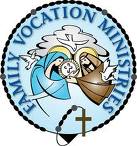 “Which one of you would hand his son a stone when he asked for a loaf of bread, or a snake when he asked for a fish? If you then, who are wicked, know how to give good gifts to your children, how much more will your heavenly Father give good things to those who ask him.”
“Which one of you would hand his son a stone when he asked for a loaf of bread, or a snake when he asked for a fish? If you then, who are wicked, know how to give good gifts to your children, how much more will your heavenly Father give good things to those who ask him.”
This excerpt from today’s Gospel beautifully depicts Our Heavenly Father’s love for us and His desire to give us every good gift.
As a human father, I generally try to give my children bread and fish, and not a stone or snake. In other words, I try to give them good gifts.
At the same time, I don’t give them something just because they ask for it. Perhaps instead of “bread” and “fish” they want to fill up on candy and soda before dinner. Of course I have to say no to that. Similarly, I may have to say no to entertainment choices that are more harmful than uplifting.
Through this common experience, it’s clear to me that in giving good gifts, a father (as opposed to a “sugar daddy”) must exercise wisdom and discretion.
We have a Father in heaven who wants to bestow on us gifts that are infinitely beyond our limited imaginations. Yet what seems “good” to us right now may in fact be harmful to us. Thankfully our Father’s beneficence to us is above all a matter of divine wisdom, not passing human fancies.
During this season of Lent, as we strive to grow in our own personal vocation in Christ, may we seek to purify our desires, so that we may want only what is truly good for us.
 This past weekend I took the time to explore the website of
This past weekend I took the time to explore the website of  I came across a couple interesting vocation-related articles on the Internet this past weekend.
I came across a couple interesting vocation-related articles on the Internet this past weekend.
 This evening at 6:30 p.m. eastern time, EWTN will premiere its much-anticipated new program called “The Catholic View for Women.”
This evening at 6:30 p.m. eastern time, EWTN will premiere its much-anticipated new program called “The Catholic View for Women.”
 I was just browsing through
I was just browsing through  I always keep on my desk a leaflet from the
I always keep on my desk a leaflet from the  Of Gods and Men opened last week in several theaters across the United States. It’s a true story about a group of Trappist monks, stationed in an impoverished Algerian community under threat from fundamentalist terrorists, who must decide whether to stay or leave.
Of Gods and Men opened last week in several theaters across the United States. It’s a true story about a group of Trappist monks, stationed in an impoverished Algerian community under threat from fundamentalist terrorists, who must decide whether to stay or leave. I remember well my first Lent in a religious community in the 1980s. Most of us seminarians, like many people out in the world, gave up sweets for 40 days. The one time that this penance really came into play was during the afternoon coffee break. The nearby Au Bon Pain restaurant donated day-old pastries to the seminary, and these were typically brought out to give us a little sugar boost to get us through metaphysics and epistemology.
I remember well my first Lent in a religious community in the 1980s. Most of us seminarians, like many people out in the world, gave up sweets for 40 days. The one time that this penance really came into play was during the afternoon coffee break. The nearby Au Bon Pain restaurant donated day-old pastries to the seminary, and these were typically brought out to give us a little sugar boost to get us through metaphysics and epistemology.